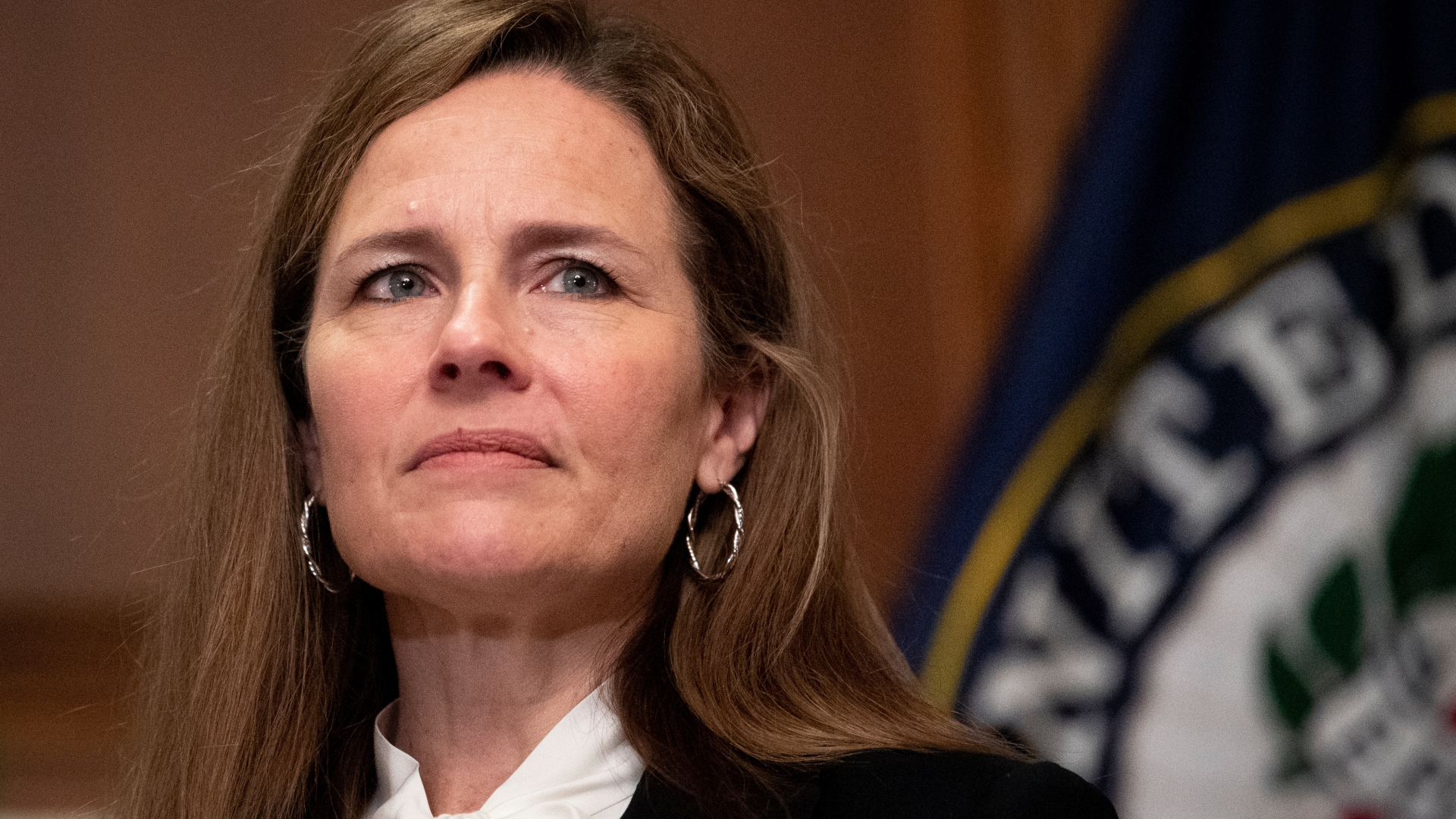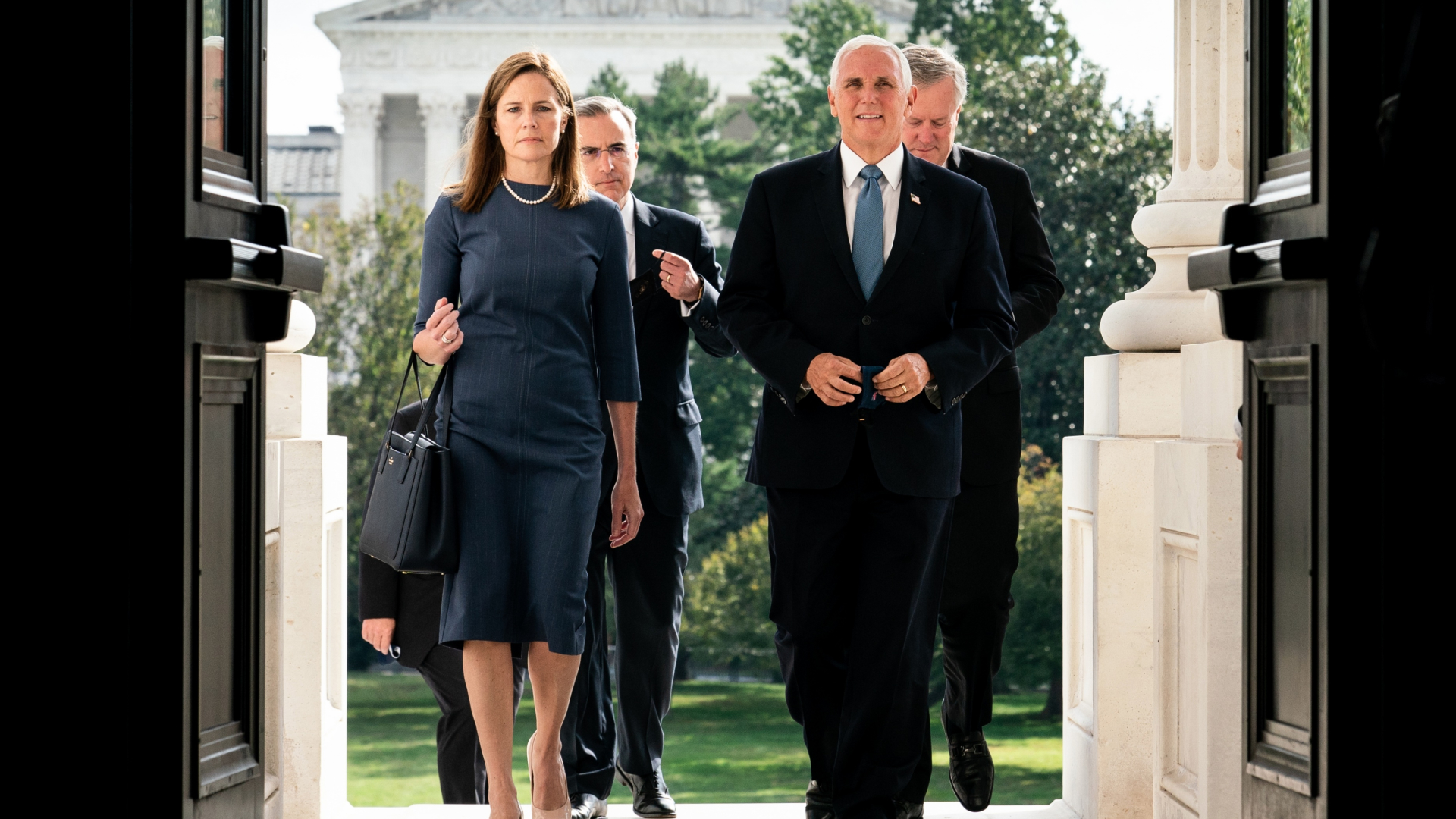What does Amy Coney Barrett joining the Supreme Court mean for you?
Trump's conservative pick, Judge Barrett, has been fast-tracked to a seat at the US Supreme Court, so how will she impact you?


It may have only been a month ago that President Donald Trump nominated Amy Coney Barrett to the US Supreme Court, but since then, the conservative Judge has been fast-tracked through a confirmation process that has been deemed undemocratic, with most Americans against the way it has been conducted.
Barrett—an academic, Christian appeals court Judge who has admitted that her personal religious beliefs determine her potential rulings, especially on topics like LGBTQ+ rights and abortion—has been a long-time favourite of Trump's, with the Republican President reportedly admitting that he was "saving her" for the moment a spot would open up on the nine-member court. Thus, when a vacancy emerged following the death of elderly Justice Ruth Bader Ginsburg, he wasted no time in announcing the 48-year-old mother-of-seven as his nomination.
In the most rushed Supreme Court confirmation since 1975, Judge Barrett has been sworn in as Ginsburg's replacement just one week prior to 2020 election night, after a four-day confirmation hearing in the Senate in which she won following a close 52-48 majority. But what does her appointment mean for not only the future of America but for you, personally?
Here are just a few things you need to know about Judge Amy Coney Barrett and how they, along with others, could have a direct impact on your life...

Judge Barrett's views on abortion
Judge Barrett's appointment may, in itself, seem like a victory for feminism at first, but it is in no way a win for women. As a white Christian mother-of-seven, she has made no secret of her devotion to Catholicism and how it influences her views on issues such as reproductive rights, making her a direct threat to the 1973 ruling Roe v. Wade, which established abortion as a right for women.
She has referred to abortion as "always immoral" and stated in a 2013 speech that she believes life begins at conception and ends at natural death—that is, of course, unless the state orders a death penalty. In fact, Barrett also joined a letter from a religious organisation named the Beckett Fund, that called for corporations to prevent insurance coverage for contraception if it violated the shareholders’ religious beliefs.
Judge Barrett's views on LGBTQ+ rights
As reported in The New York Times, Barrett's life has been shaped by an insular, 1,650-strong religious community known as the People of Praise. The group have strict beliefs on human sexuality and reaffirm old traditional gender roles, as well as ejecting anyone who has gay sex.
This is quite unsettling, especially as one of Barrett's first cases in the Supreme Court is scheduled on 4 November (the day after Election day) in which she'll hear Fulton v. Philadelphia, where Catholic Social Services (CSS) sued Philadelphia after the city said CSS could not discriminate against LGBTQ+ couples when placing children into foster care. The case is one of the biggest regarding LGBTQ+ rights and following recent comments made by Supreme Court Justices Clarence Thomas and Samuel Alito about the 2015 marriage equality ruling, Barrett's influence could have an enormous impact on the future of LGBTQ+ rights.
Views on "constitutional originalism"
Barrett has stated that she supports "constitutional originalism". In other words, this means that she believes that Judges should stick to and be entirely bound by the words of the Constitution, and the meaning of those words should be determined solely based on how they were understood when they were first added to the Constitution.
She said: “Constitutional text means what it did at the time it was ratified and... this original public meaning is authoritative.”
Some would call this a rather contradictory stance, considering the fact that adhering to the original words of the Constitution would mean that she, as a woman, would not have the right to vote, let alone be a Supreme Court Judge.
Amy Coney Barrett's views on healthcare rights
Trump made it very clear that he planned on appointing a Judge who would overturn the Affordable Care Act (ACA)—commonly known as Obamacare). It looks as though Barrett could be that Judge.
Back in 2012, when ACA was first challenged at the Supreme Court, Barrett was very critical of Chief Justice John Roberts’ opinion in support of the Act, saying that he had “pushed the language of the law ‘beyond its plausible meaning to save the statute,’” according to a report released by the National Women's Law Centre.
Sagal is a journalist, specialising in lifestyle, pop culture, fashion and beauty. She has written for a number of publications including Vogue, Glamour, Stylist, Evening Standard, Bustle, You Magazine, Dazed and Wonderland to name a few.
